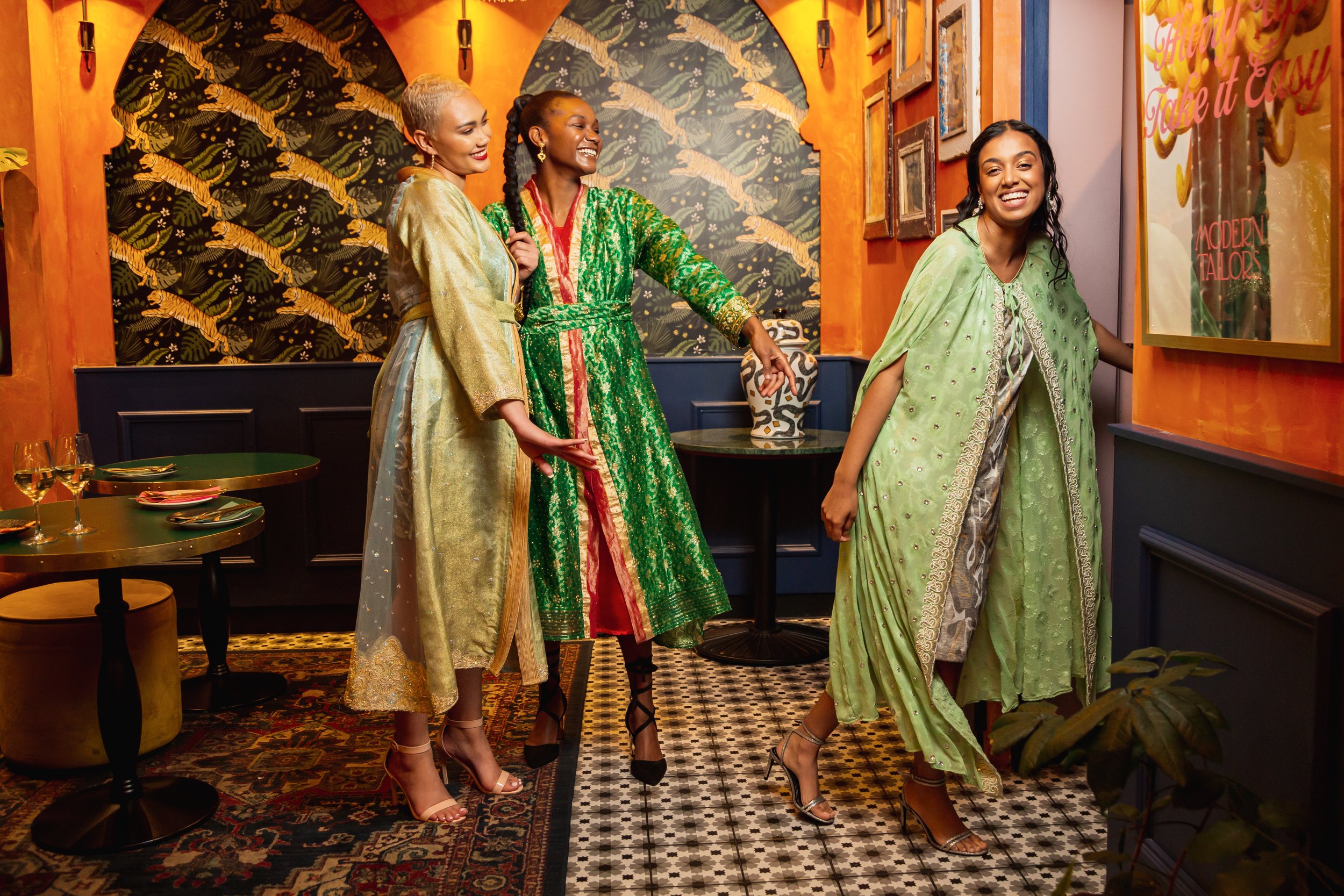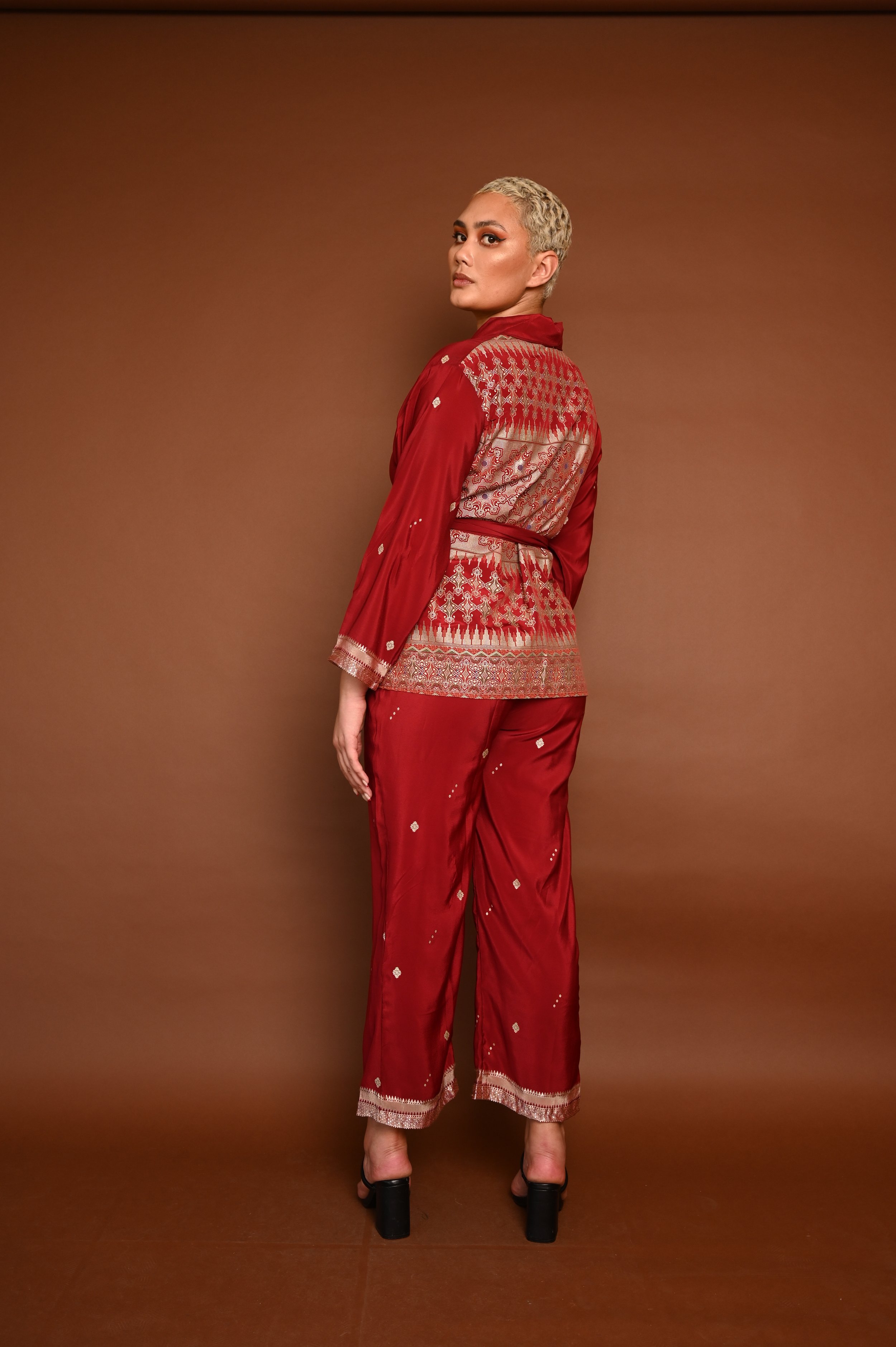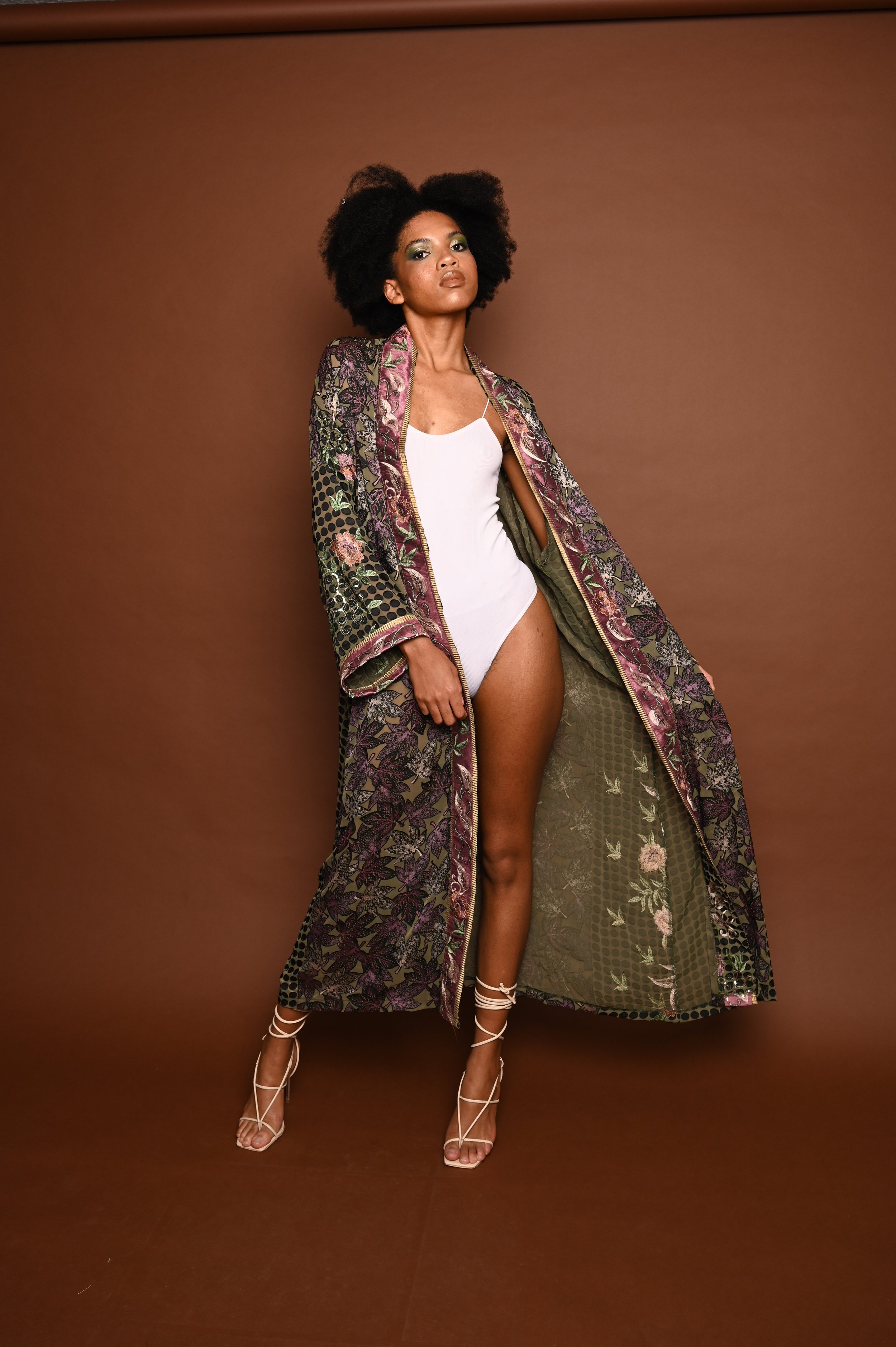Maker’s Tales: Sari for Change
In this instalment of Maker’s Tales we’re taking an inside look at the incredible work of Sari for Change. This innovative design initiative seeks to go beyond mass production and join part of a global fashion revolution that emphasises sustainability, ethical clothing production, and important storytelling.
The fashion industry is in a state of flux. After owning boutiques in Kenya, Johannesburg, and Cape Town, sourcing inventory from Vietnam, Turkey, and the East, founder Rayana Edwards realised that she needed to shift the consciousness of the way in which fashion is done. She realized the sari, which is around 6 meters of fabric, could be upcycled into culturally rich garments.
Edwards is concerned with a woman's immediate needs, ‘To put food on the table,’ she says. She trains women with the necessary skills to be self-reliant.
"I am not selling a product", she explains. For her, the garments are merely a by-product of the process. Rather she is ‘providing a service in training future entrepreneurs in business skills and needlecraft to create their own employment where they can either become entrepreneurs, suppliers of skills or distributors.’
For Sari For Change, it’s all about consciousness, connectivity, and continuity.
The brand is an important addition to South Africa’s incredible melting pot. Repurposing the traditional Indian sari, they are able to infuse this iconic garment to become the style of its wearer, whether they be African, Arabic, or even of Malaysian styles. The results, which are beautiful blends of cultural DNA from across a vast area of the globe, are wearable within all cultures.
Producing Change
Asked about their approach to production in a highly competitive fashion world, Edwards has the following to say: “A Sari for Change product tells a ‘pay-it-forward’ story of generosity and gifts from a grandmother, aunt or mother who has donated her traditional bridal garments to this South African cause. At Sari for Change, we build on the value and worth of the sari, transforming it into a modern garment bearing a resemblance to the original sari, but with a thoroughly modern take. It becomes a sari that carries the weight and years of tradition and energy.”
Edwards’s efforts have not gone unnoticed: in 2020, she was the joint winner of the 2020 Goldman Sachs and Fortune Global Women Leaders Award. In an interview with Victor Oluwole on Business Insider’s website, Edwards said that Sari for Change was started “as a sustainable fashion project to influence and shift the mindset of unemployed women, to believe in possibility through utilizing and starting with what we already have.” Powerful words, and ones that are certainly borne out by the project’s products.
Creating stunning kaftans, kimonos, drawstring pants, and reversible jackets in varying lengths, the pieces are bespoke in the ultimate sense of the word, each one being unique because a different sari is used for each garment. So, while cuts can be similar, no single garment can be fully reproduced, which adds to the allure of this product line.
A Sustainable Heirloom
The sustainability of the project extends beyond using 100% recycled saris as its base material: Sari for Change also trains and upskills makers in its incubation hubs, which aim to teach women to monetize the skills they have learned and ultimately become self-sustaining. In Edwards’s words, it’s about creating ‘an inclusive ecosystem’.
What’s more, the project aims to maintain its ‘zero plastics policy’ through an amazing idea: donated saris which contain a high percentage of polyester are kept aside for making packaging bags. These bags are the first items that new trainees will work on; many women who begin with Sari for Change are using sewing machines for the first time in their lives, and so the project touts itself as having the ‘most imperfect bags in the business!
The project’s accolades are many and varied. From guest-lecturing at GIBS business school on sustainability and shared values to participating at Torino Fashion week in 2017, where a range designed by their client in Sweden was produced in South Africa and shown in Italy; Sari for Change is at the forefront of building sustainable, bottom-up business models for our emerging market.
Join us at this year’s HmC Fair on The Piazza, Melrose Arch, Melrose, Johannesburg, from 01 to 03 September to see more about these amazing products





